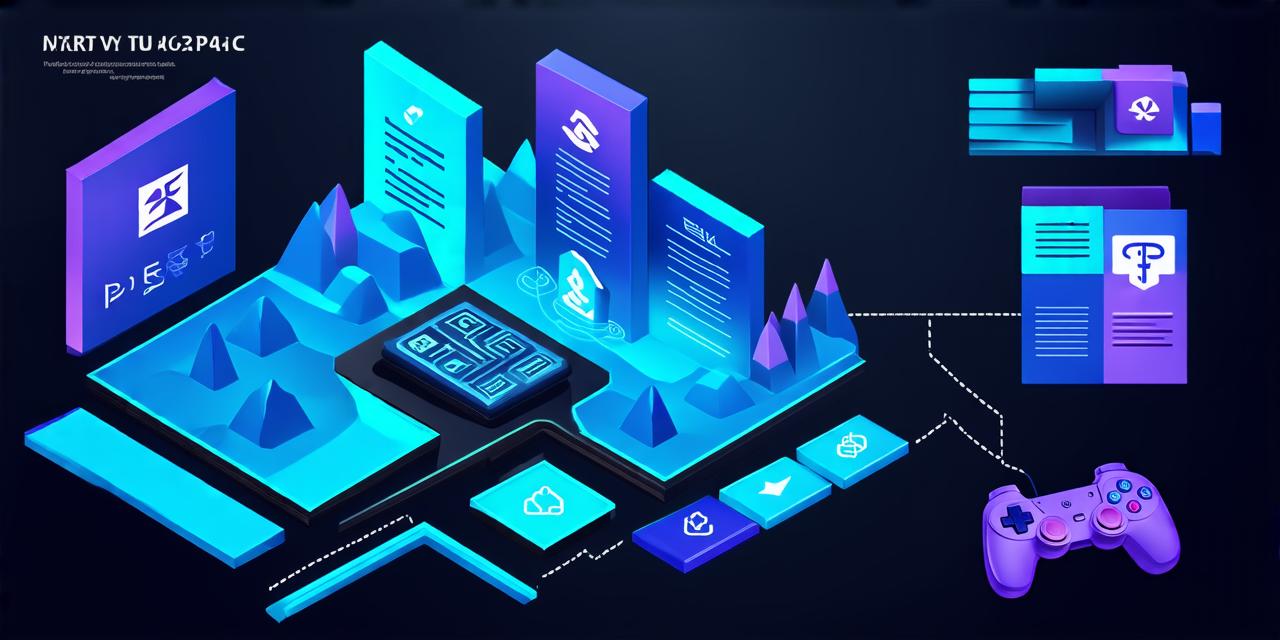Understanding NFT Games
Before delving into the legality of NFT games, it’s important to understand what they are and how they work. NFT games are video games that use blockchain technology to create unique assets that can be bought, sold, and traded on decentralized marketplaces. These assets, known as NFTs, are digital representations of physical objects or items that have been tokenized and stored on a blockchain.
NFT games often involve elements such as collectibles, gaming cards, and in-game items that can be bought and sold using cryptocurrency. The ownership of these NFTs is secured by the blockchain, which means that once an NFT has been bought, it cannot be tampered with or stolen.
The Legal Status of NFT Games
Now that we have a better understanding of what NFT games are, let’s explore their legal status. In most countries, playing NFT games is considered a form of entertainment and is generally not regulated by law. However, there are some exceptions to this rule.
For example, in the United States, the Securities and Exchange Commission (SEC) has classified some NFTs as securities, which means that they are subject to federal securities laws. This classification occurs when an NFT represents a real-world asset or income-generating property, such as a piece of real estate or a royalty stream.
In addition, some countries have specific laws regarding the use of cryptocurrency in gaming and other activities. For example, in China, the use of cryptocurrencies in online gambling and other unlicensed activities is illegal.
Ensuring Compliance with Laws
As a game developer, it’s important to ensure that your NFT games comply with all relevant laws and regulations. Here are some tips for doing so:
1. Understand the laws in your jurisdiction: Before launching your NFT game, research the laws and regulations in your country or region to ensure that you are operating within the law.
2. Consult with legal experts: If you’re unsure about the legality of your NFT game or need guidance on how to comply with laws and regulations, consider consulting with a legal expert who specializes in cryptocurrency and blockchain technology.
3. Conduct due diligence on your users: When creating an NFT game, it’s important to conduct due diligence on your users to ensure that they are not engaging in illegal activities or violating the terms of service of your platform.
4. Obtain necessary licenses and permits: Depending on the nature of your NFT game, you may need to obtain licenses and permits from government agencies or other regulatory bodies.
5. Implement strong security measures: As with any online platform, it’s important to implement strong security measures to protect your users’ personal and financial information.
Real-Life Examples of NFT Games and Legal Issues
To illustrate the legal issues surrounding NFT games, let’s look at some real-life examples:
1. CryptoKitties: In 2017, a blockchain-based game called CryptoKitties was launched on the Ethereum network. The game allowed users to buy, sell, and breed digital cats that were stored as NFTs on the blockchain. While CryptoKitties was initially successful, it ran into legal issues when it was discovered that some of the cats being sold were classified as securities by the SEC. This led to the game’s creators being forced to shut down and pay fines.
2. Decentraland: Decentraland is a virtual reality platform that allows users to create and participate in NFT games. While Decentraland has not faced any legal issues, it has been criticized for its lack of transparency and the potential for illegal activities to take place on its platform.
3. Axie Infinity: Axie Infinity is an NFT game that allows users to collect and battle creatures called “Axies” that are stored as NFTs on the Ethereum blockchain. While Axie Infinity has not faced any legal issues, it has been criticized for its high energy consumption and the potential for environmental damage caused by mining cryptocurrencies.

Conclusion
In conclusion, playing NFT games is generally considered legal, but there are some exceptions to this rule. As a game developer, it’s important to understand the laws in your jurisdiction, consult with legal experts if necessary, and implement strong security measures to protect your users’ personal and financial information. By doing so, you can help ensure that your NFT game operates within the law and provides a safe and enjoyable experience for your players.
FAQs
1. Is it illegal to play NFT games?
No, playing NFT games is generally not illegal. However, there are exceptions to this rule, such as when an NFT represents a real-world asset or income-generating property that is classified as a security by the Securities and Exchange Commission (SEC).
2. What is the difference between NFT games and traditional games?
NFT games use blockchain technology to create unique assets that can be bought, sold, and traded on decentralized marketplaces. These assets, known as NFTs, are digital representations of physical objects or items that have been tokenized and stored on a blockchain. Traditional games, on the other hand, do not use blockchain technology and do not typically involve the ownership of unique assets.
3. Can I play NFT games without worrying about legal issues?
It’s important to understand the laws in your jurisdiction and consult with legal experts if necessary to ensure that you are operating within the law when creating an NFT game. However, playing NFT games is generally considered legal and does not require any special permits or licenses.
4. What happens if I run into legal issues while playing NFT games?
If you run into legal issues while playing NFT games, it’s important to consult with a legal expert who specializes in cryptocurrency and blockchain technology. In some cases, you may need to shut down your game or pay fines to resolve the issue.
